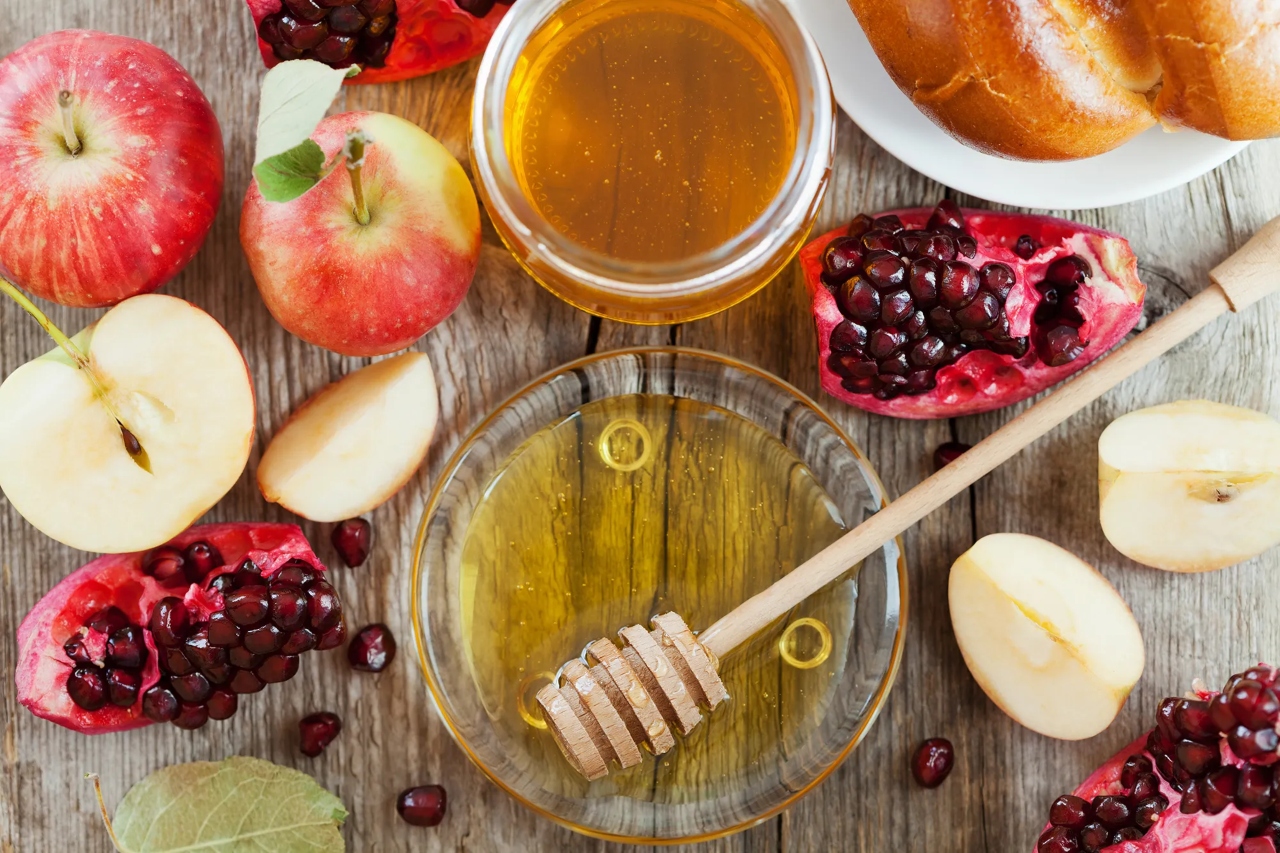Rosh Hashanah, the Jewish new year, is here! In 2023, it falls on the night of Friday, September 15 through the evening of Sunday, September 17.
What is Rosh Hashana?
Rosh Hashanah is an important celebration in the Jewish year, as they welcome the start of the new year and the chance to absolve their sins and start again.
Rosh Hashanah, literally “Head of the Year” in Hebrew, is the beginning of the Jewish new year. It is the first of the High Holidays or ”Days of Awe,” ending 10 days later with Yom Kippur.
This two-day festival marks the anniversary of human creation—and the special relationship between humans and God, the creator.
Rosh Hashanah begins with the sounding of the shofar, an instrument made of a ram’s horn, proclaiming God as King of the Universe, just as a trumpet would be sounded at a king’s coronation. In fact, Rosh Hashanah is described in the Torah as Yom Teru’ah, a day of sounding (the Shofar).
The sound of the shofar is also a call to repentance—to wake up and re-examine our commitment to God and to correct our ways. Thus begins the “Ten Days of Repentance” which ends with Yom Kippur, the “Day of Atonement.”
Every evening, candles are lit. Candles are often a symbol of remembrance. On the first day of Rosh Hashanah, the Tashlich ceremony is performed. This involves visiting a body of fresh water to cast past sins away symbolically.
Spicy, sharp, or sour foods are avoided in favor of sweet delicacies, representing wishes for a sweet and pleasant year (not a bitter year). Nuts are also avoided.
Jews traditionally dip apples in honey on Rosh Hashanah to express a wish for a sweet new year or any assortment of sweet foods on Rosh Hashanah.

There are several ways to wish someone a happy new year or to greet someone on Rosh Hashanah.
You can say “Happy New Year,” “Happy Holiday” or use one of the following:
Shana tova is the most common greeting around the High Holidays. It translates to “Have a good year” in Hebrew and is akin to saying “Happy New Year” around December and January.
L’shana tova is a different (slightly fancier) way of saying shana tova. It directly translates to “for a good year” in Hebrew, so it can be understood as “wishing you a good year.”
Shana tovah u’metukah means “have a good and sweet year” in Hebrew. You’ll notice that ‘sweetness’ is a theme of the holiday.
Jewish people may provide gifts during the holidays, but it doesn’t have to be expensive or elaborate. Many members of the faith gift food baskets, considering the significance of food during the week.
This article is dedicated to my love, and his family. Shana tova!
Get the news you need at It’s On News.


